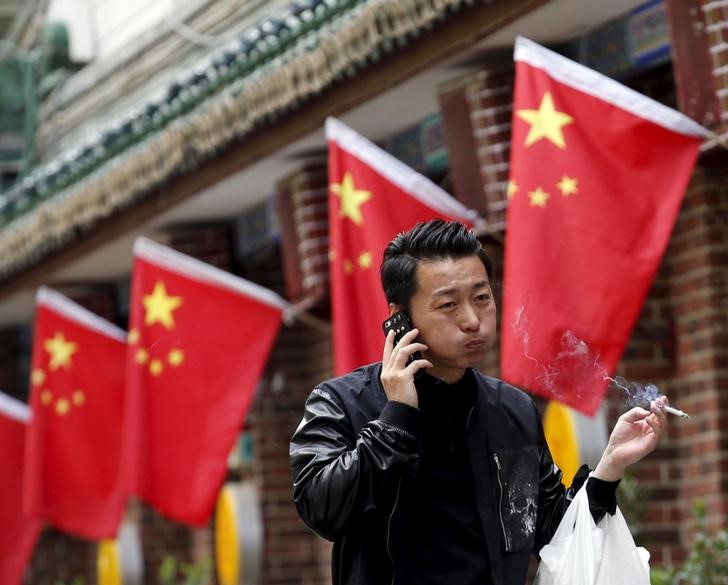(Bloomberg) -- White House trade adviser Peter Navarro warned Wall Street bankers and hedge-fund managers to back down from their push for President Donald Trump to strike a quick trade deal with China’s Xi Jinping.
“As part of a Chinese government influence operation, these globalist billionaires are putting a full-court press on the White House in advance of the G-20 in Argentina,” Navarro said in a speech at the Center for Strategic and International Studies in Washington on Friday. Their mission is to “pressure this president into some kind of deal” but instead they’re weakening his negotiating position and “no good can come of this.”
Navarro said investors should be re-directing their “billions” of dollars into helping rebuild areas hit by manufacturing job losses. “Wall Street, get out of those negotiations,” Navarro said. “Bring your Goldman Sachs (NYSE:GS) money to Dayton, Ohio, and invest in America.”
Navarro didn’t offer details on how Wall Street bankers or investors are pressuring the White House. But his comments came two days after former Goldman Sachs president and ex-Trump economic adviser Gary Cohn took a thinly veiled shot at Navarro, saying Trump had found “one economist on Amazon (NASDAQ:AMZN) who thinks trade deficits matter, and he listens to him.”
U.S. stocks continued their decline on Friday following Navarro’s comments, which added to the gloomy outlook created by disappointing earnings in the technology sector and concerns about a bear market in oil prices.
Cohn -- along with Treasury Secretary Steven Mnuchin, another former Goldman Sachs executive -- have diverged on trade policy from Navarro and ex-White House strategist Steve Bannon, who advocate a more confrontational approach toward China.
Trump is expected to discuss trade with Xi when they meet at the Group of 20 summit taking place Nov. 30-Dec. 1 in Buenos Aires. While Trump has asked cabinet officials to outline the terms of a possible deal with Xi, Chinese officials have given no indication they’re ready to meet key U.S. demands, such as halting forced technology transfers or rolling back support for state-owned enterprises.
Navarro said simply buying more American soybeans and coal won’t satisfy the Trump administration, which wants deeper “structural change” in the Chinese economy. He said trust in the Asian nation has deteriorated, with the White House doubting the ability of Beijing to follow through on its promises.
“How do you have a deal with somebody if they don’t even acknowledge your concern? It’s Alice in Wonderland,” Navarro said.
On Monday before congressional midterm elections, Trump told a campaign rally in Fort Wayne, Indiana, that he still believed he and Xi could settle the dispute.
Earlier this week, Chinese Vice President Wang Qishan said China remained ready to discuss solutions to the trade war, though he added that Beijing wouldn’t be “bullied and oppressed by imperialist powers.”
(Updates with Navarro comments starting in eighth paragraph.)
